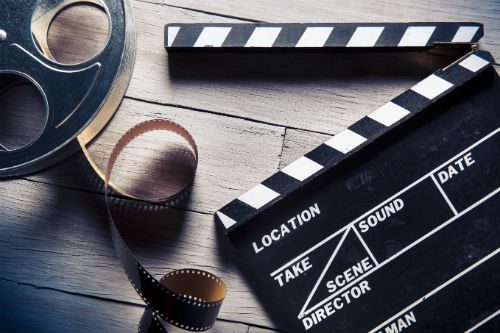Introduction to Entertainment Law
Entertainment law encompasses a wide range of legal disciplines as they apply to the entertainment industry, including intellectual property law, contract law, labor law, tort law, and media law. It governs the creation, production, distribution, and consumption of content across music, film, television, theatre, digital media, and more. For creators—whether they are musicians, screenwriters, YouTubers, or game developers—having a basic grasp of these legal principles is crucial to protecting their rights and interests. At its core, entertainment law focuses on negotiating and drafting contracts, protecting intellectual property, and ensuring compliance with relevant laws and regulations
Intellectual Property: The Creator’s First Line of Defense
The cornerstone of entertainment law is intellectual property (IP) law, which includes copyrights, trademarks, patents, and trade secrets.
- Copyright Law: This is perhaps the most vital for content creators. Copyright protects original works of authorship such as scripts, songs, videos, choreography, and artwork. Once a work is created and fixed in a tangible medium, the creator automatically holds the copyright. However, registration with the relevant authority (e.g., the U.S. Copyright Office) enhances enforcement rights.
- Fair Use Doctrine: Creators often borrow from existing works, which raises the issue of fair use. This legal doctrine allows limited use of copyrighted material without permission for purposes like criticism, commentary, parody, or education. However, its boundaries are blurry, and misuse can lead to litigation.
- Trademark Law: Artists and influencers often develop personal brands that are worth protecting. A trademark safeguards logos, slogans, and brand names, helping to prevent confusion in the market.
- Moral Rights: In some jurisdictions, creators retain rights to be credited and to object to derogatory treatment of their work, even after transferring economic rights.
Contract Law: The Fine Print Behind the Glamour
Every creator eventually deals with contracts—be it a record deal, publishing agreement, or endorsement contract. Understanding the terms and consequences of these documents is critical.
- Key Clauses to Watch:
- Grant of Rights: Specifies what rights are being transferred and for how long.
- Compensation: Details payments, royalties, and revenue shares.
- Exclusivity: Can restrict the creator from working with others.
- Termination: Outlines the conditions under which a contract can end.
- Dispute Resolution: Specifies whether disputes will go to court, arbitration, or mediation.
Creators should ideally consult a legal expert before signing anything. Many artists have lost control over their work or endured long-term financial losses due to unfavorable contracts.
Digital Media and Content Creation
With the rise of YouTube, TikTok, Twitch, and other platforms, entertainment law has expanded into new territories.
- Content Ownership: Platforms often claim certain rights over uploaded content. Understanding terms of service is essential.
- Monetization Agreements: Influencers must be careful with brand deals, affiliate marketing, and ad revenue arrangements to ensure legal compliance.
- DMCA and Takedown Notices: The Digital Millennium Copyright Act (DMCA) provides a mechanism for copyright holders to request the removal of infringing content. However, it can be misused, affecting creators unfairly.
- Right of Publicity: Using someone’s image, voice, or persona without permission can lead to legal consequences. Creators must avoid unauthorized use of third-party content.
Defamation, Privacy, and Ethical Boundaries
Public figures and creators must also navigate laws related to defamation and privacy.
- Defamation: False statements that harm a person’s reputation can lead to lawsuits. In the digital age, even a tweet or video comment can be grounds for action.
- Invasion of Privacy: Unauthorized recordings, disclosures of private facts, or misappropriation of likeness can create legal issues.
- Children in Entertainment: When working with minors, special labor laws and privacy protections apply, including compliance with COPPA (Children’s Online Privacy Protection Act) in the U.S.
Labor Laws and Unions
Entertainment law also encompasses labor regulations, especially when dealing with actors, musicians, and crew members.
- Guilds and Unions: Organizations like SAG-AFTRA, the Writers Guild of America (WGA), and others negotiate collective bargaining agreements that protect creative workers.
- Workplace Safety and Harassment: Productions must follow regulations concerning working conditions, safety standards, and anti-harassment policies.
International Considerations
As entertainment becomes increasingly global, creators face legal issues across multiple jurisdictions.
- Territorial Rights: Licensing deals often vary by country.
- Censorship and Content Regulations: Countries have different standards for permissible content.
- Cross-border Royalties and Taxation: Managing income from international streams or performances can be legally complex.
Emerging Trends and Legal Challenges
- AI and Deepfakes: The rise of AI-generated content poses new challenges in authorship and rights.
- NFTs and Blockchain: Digital tokens offer new ways for creators to monetize their work, but also raise regulatory and copyright questions.
- Streaming Wars: The competition among streaming platforms has altered how rights are negotiated and valued.
Legal Resources and Proactive Steps for Creators
- Consulting an Attorney: Creators should engage lawyers specializing in entertainment or IP law.
- Registration and Record-Keeping: Documenting work and registering IP rights is a crucial protective step.
- Education and Awareness: Staying informed about legal rights and industry practices helps creators avoid exploitation.
Conclusion
In today’s fast-paced entertainment landscape, legal literacy is as important as creative talent. From understanding copyright nuances to navigating contract pitfalls and protecting one’s digital persona, creators must operate with both artistic vision and legal acumen. For law students and aspiring entertainment lawyers, this evolving field offers a dynamic and meaningful career path—one that sits at the intersection of creativity, commerce, and justice.
Entertainment law isn’t just about courtroom drama or celebrity lawsuits; it’s about empowering storytellers, safeguarding innovation, and ensuring that the people behind the magic of media are treated fairly, legally, and respectfully.
Contributed By: Arzoo Kala (Intern)

